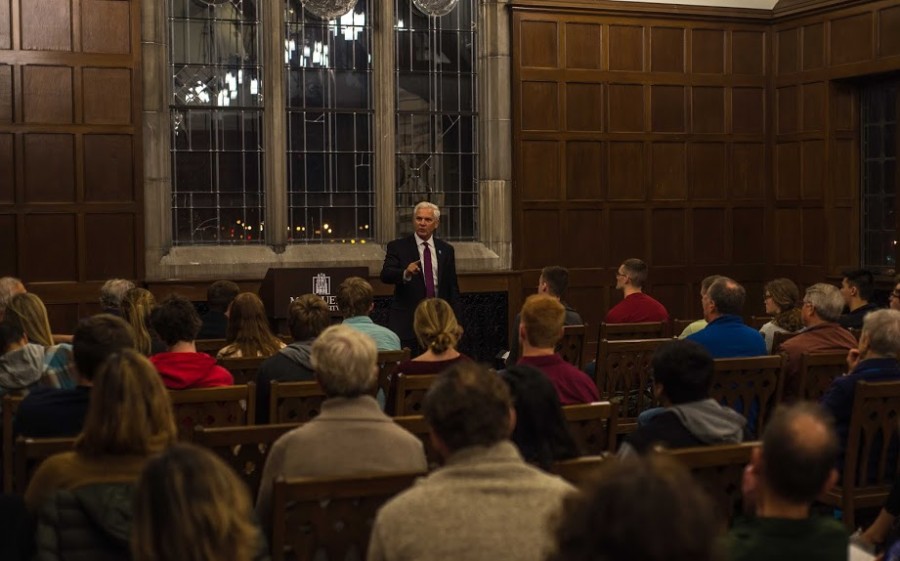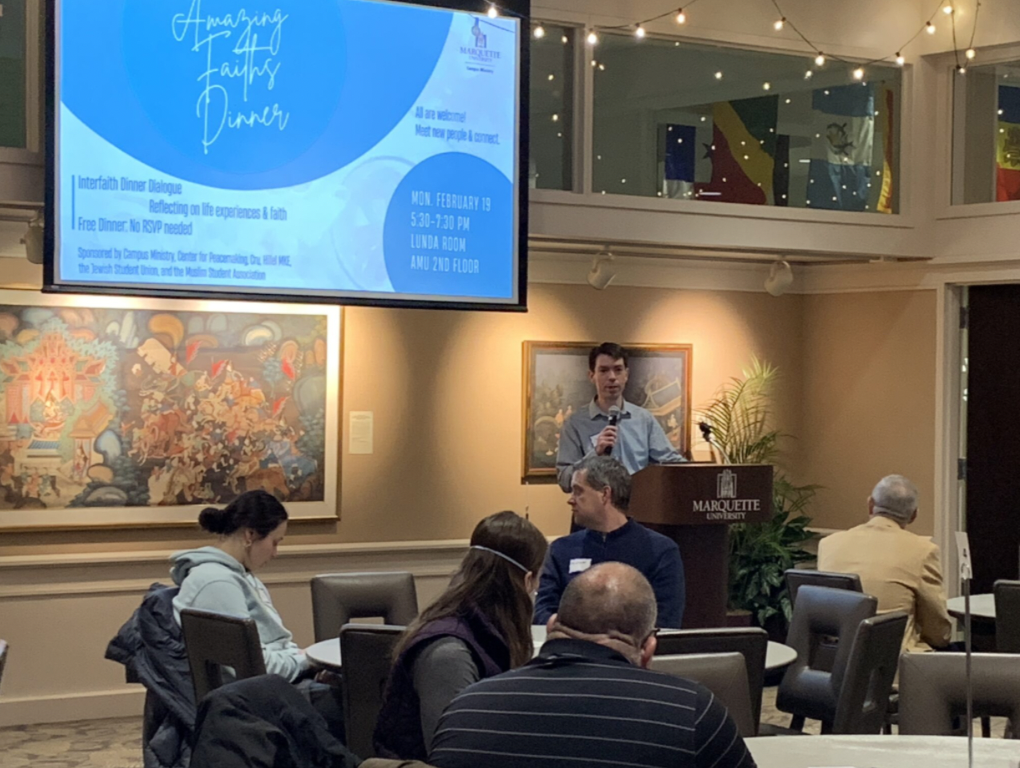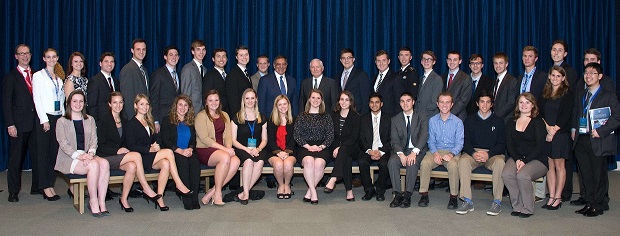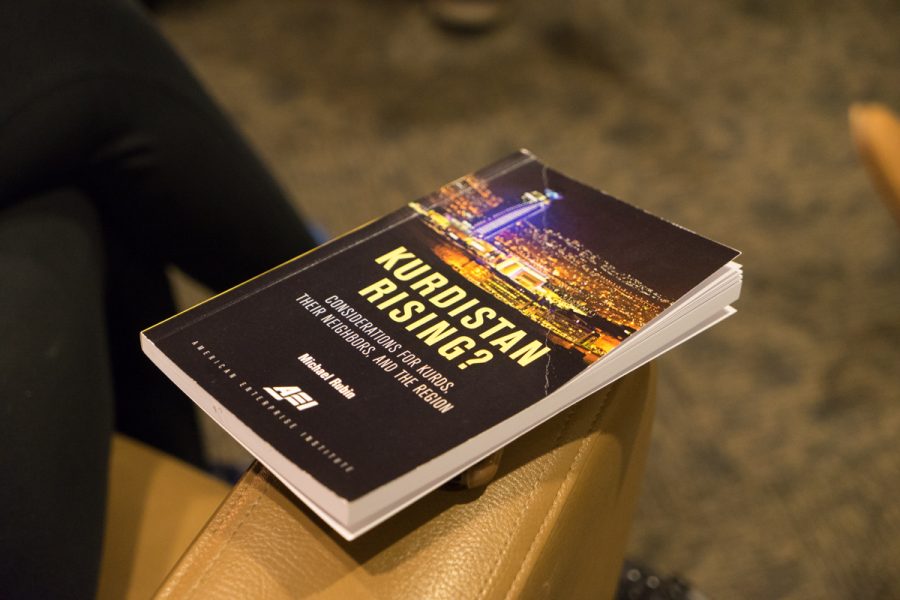Joseph Cirincione, a member of Secretary of State John Kerry’s International Security Advisory Board, discussed the magnitude of the Iran nuclear deal on campus Oct. 27.
Cirincione presented “The Policy and Politics of the Iran Nuclear Agreement: An Inside Look at the Deal and What Happens Next” to about 40 audience members, many of them students. He is also president of the Ploughshares Fund, a global security and public grant-making foundation focused on nuclear weapons policy and conflict resolution.
The event was hosted by Marquette’s Center for Peacemaking and co-sponsored by the university’s peace studies department, international affairs department and the United Nations Associations.
Christopher Jeske, associate director for the Center for Peacemaking, said Cirincione was invited to inspire students to learn more about peacemaking.
“(Cirincione) brings a tremendous understanding of these complex issues, and he’s also very much committed to building a peaceful nonviolent world,” Jeske said.
Cirincione actively supports the deal, which aims to stop Iran from acquiring nuclear weapons by ending economic sanctions against them. He said this deal is important for everyone, including students, because of what could happen.
“The alternative of this deal was to go to war with Iran, this is not an exaggeration,” Cirincione said. “It would have impacted all of our futures, it would’ve changed history.”
One of Cirincione’s goals is to educate people on the magnitude of the deal.
“I cannot overstate how big a deal this is,” Cirincione said. “It’s one of those forks in history where one road leads to catastrophe, and the other way leads to progress and hope.”
Throughout his presentation, Cirincione stressed that the deal happened because of the influence of American citizens. He told the audience to never underestimate that what they do matters.
“Average citizens did make a huge difference in this deal,” Cirincione said. “Whether it was retired diplomats writing letters to the New York Times, or students sending emails to their representatives and engaging in protest.”
Luke Baeckelandt, a junior in the College of Arts & Sciences, thought the event went well.
“I thought he was a very articulate speaker, and really got his point across,” Baeckelandt said. “I didn’t know much about the agreement, but I plan to look into it more.”
Claire Guinta, a sophomore in the College of Arts & Sciences, said the information from the event was helpful in learning more about the deal.
“I liked that he outlined the three different camps of where politicians stand,” Guinta said.
Louise Cainkar, an associate social welfare and justice professor and director of the peace studies program, hopes students will take some optimism away from the discussion.
At the end of his presentation, Cirincione added that there are ways to get involved without dedicating a career to peace making.
“Whatever you do in life you can be supportive of the cause,” he said.
Cainkar supplemented Cirincione’s message.
“I think you can always support people who do the work,” Cainkar said. “So many people can show they care without doing it for a living.”





